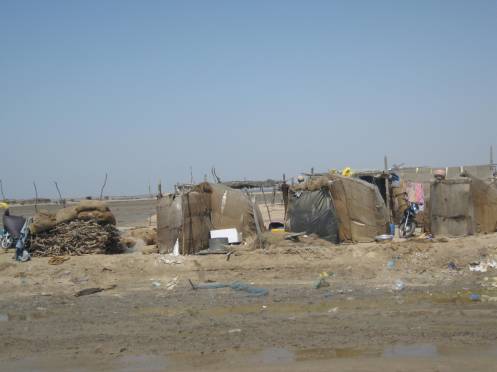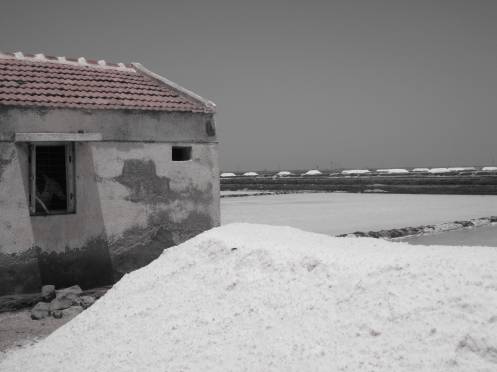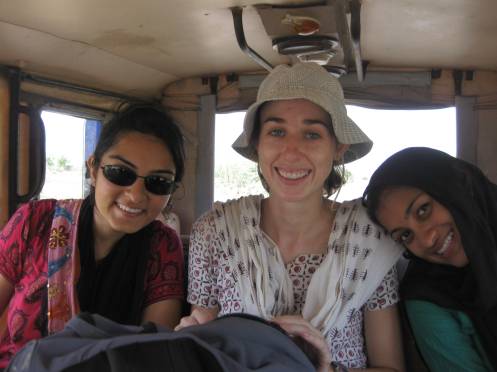Human Rights?
A month ago, Ekta, my friend Nilam and I went to a port city called Mundra in western Gujarat to visit our fellow fellow Diane. There we saw the true depth of poverty in India. It was eye-opening. The work that we do at Saath ultimately focuses on the middle to top of the bottom, where people are capable to at least contribute to services. Slum residents have access to services, albeit sub-par, but access none the less. Rural migrants have at least the choice to seek new opportunities. In the fishing villages and salt panning communities that we visited, opportunity does not even exist. Even after 12 hour work days in the intense 115 heat, daily wages are not guaranteed nor is a supply of food. Things that we are trying to improve on in the slums like shelter, education, healthcare, banking, aren’t even imaginable here. Many of the people we visited said they fully expect their children to engage in the same work – not because they don’t want their kids to have a better life, but because they are confident that there are no other options. They are right. Markets and enterprises don’t work here. Every child here is born without basic human rights.





